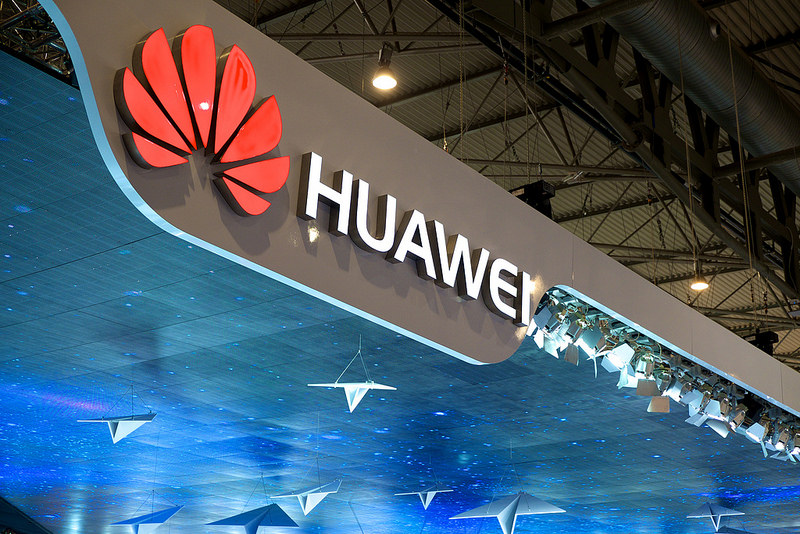The media-shy founder of Chinese tech giant Huawei has given a rare interview to international news organisations in an attempt to assuage the growing global security concerns surrounding his company. While strenuously denying that Huawei has been spying on behalf of the Chinese government, much of the coverage naturally centred on Ren Zhengfei’s statement that he misses his daughter very much.
Meng Wanzhou, the company’s chief financial officer, cannot return to China as she is being prevented from leaving Canada pending a possible extradition to the US to answer charges relating to the sanctions on Iran. Yet beyond the theatrics of her case, the much bigger story surrounds the growing global opposition to Huawei, which had looked set to dominate its sector – not least after establishing itself as the world’s largest manufacturer of telecommunications equipment and overtaking Apple last August to become the second-biggest smartphone vendor in the world after Korea-based Samsung.
Ren’s assurances around security will do little to satisfy concerns. Not only would it be illegal for Huawei to deny a request for assistance from Chinese intelligence-gathering agencies, according to article 7 of 2017’s National Intelligence Law, the authorities regularly circumnavigate legal constraints with impunity in any case.
As a large organisation based in technology hub Shenzhen on the Chinese mainland, Huawei’s existence depends on the continued approval of the Chinese Communist Party. The company is enmeshed within, and beholden to, the informal networks that interlace the Chinese one-party state. At the centre of such networks are always the highest echelons of the party itself.
How China operates
Those who view China only through a single lens – that of economics or tech development, for example – often forget the reality of the country. The Communist Party effectively controls the judiciary, the police force, the education system, the armed forces, journalistic institutions, state-owned enterprises and academic institutions – to name only a few.
Nominally private businesses within that landscape understand that, despite much talk of movement toward the rule of law, one unwritten law remains essential: to survive you must maintain favour with the party and its representatives at any cost. Or as my former Chinese colleague in Beijing used to say of business relations with the party, “compromise or perish”.
Huawei, a company deserving of greater global recognition and success, simply must therefore be denied access to international projects where security is a feature. This much is evident to mainland Huawei employees I have talked to. In many cases they are talented, dedicated and creative individuals who want little to do with politics. Privately, they expect their company’s international ambitions to wilt in the long shadow of the party.
Since long before the recent dramatic arrest of a Huawei sales executive in Poland on charges of espionage, the company has been a serious concern to Western security agencies. Last February, the heads of six US intelligence agencies told a Senate committee that they didn’t trust Huawei and in August the government banned state agencies from using its equipment. This has been happening, of course, in the context of a growing trade war between China and the US.
Around the same time, the UK’s longstanding government-controlled centre for testing Huawei equipment reported shortcomings in the company’s engineering processes that raised security dangers – Huawei subsequently agreed to spend £2 billion fixing the problem. Australia said it would not allow the company to participate in its 5G telecoms network, and later accused Huawei staff of being “used by the Chinese government as a conduit for intelligence gathering”.
New Zealand and Japan have since followed suit on 5G, as have the UK’s BT and France’s Orange. Deutsche Telekom of Germany and now also Poland are reviewing their own involvement. In many cases, other Chinese companies such as ZTE have been banned as well. To stress, Huawei has denied all spying accusations on each occasion.
Huawei and the West
So how did Huawei achieve so much international success in sensitive sectors? There are several interrelated reasons. The first is that the level of control ultimately exerted by the Communist Party over Chinese mainland institutions has tended to be pitifully under-represented by Western “experts” quoted enthusiastically by news agencies that should know better.
Huawei also offers high-quality, competitively priced products and has shrewdly positioned itself in target markets with the help of local elites and institutions. In the UK, for example, it recruited to the board of Huawei UK the extraordinarily well-connected ex-BP peer Lord Browne of Madingley and former senior civil servant Sir Andrew Cahn while also installing Conservative and Liberal Democrat peers as advisers.
Former UK government chief information officer John Suffolk was hired as head of cybersecurity, while the company’s lobbying efforts were sufficiently extensive to be the subject of a Channel 4 Dispatches documentary in 2012. Huawei also sponsors the world-renowed Chatham House think tank, and has provided funding to the influential All Party Parliamentary Groups for “Internet, Communications and Technology” and “Smart Cities” at the heart of the British government.
One imagines that the discomfort over the turnaround in Huawei’s fortunes will extend beyond Beijing to all the prestigious local intermediaries attached to the company. In the UK, as with many of her allies, the pushback has been spearheaded by intelligence agencies that have looked on aghast as Huawei has been allowed far closer to power then they would like.
Expect this to get worse before it gets better for Huawei. More countries will almost certainly announce they are denying the company a role in the 5G roll-out. The company will probably never reach its full international potential. Perhaps Ren Zhengfei pointed the way forward when he suggested that Huawei might focus on countries that were “more welcoming” – mainly within the Chinese sphere of influence, in other words.
For Huawei and other Chinese companies like it, only a separation of powers and the imposition of the rule of law at home would allow it to escape the gravity of party control. Even among Chinese intellectuals, such significant party reach into the affairs of its private companies is problematic. The usually sympathetic commentator Wang Xiangwei recently denounced this close involvement as “folly and counterproductive, to say the least”.
In the years of growing Chinese commercial engagement with the outside world, the party has chosen its own ascendancy over wider Chinese prosperity. As is becoming increasingly apparent, this comes at a high price indeed.



 TSMC Eyes 3nm Chip Production in Japan with $17 Billion Kumamoto Investment
TSMC Eyes 3nm Chip Production in Japan with $17 Billion Kumamoto Investment  Elon Musk’s Empire: SpaceX, Tesla, and xAI Merger Talks Spark Investor Debate
Elon Musk’s Empire: SpaceX, Tesla, and xAI Merger Talks Spark Investor Debate  TrumpRx Website Launches to Offer Discounted Prescription Drugs for Cash-Paying Americans
TrumpRx Website Launches to Offer Discounted Prescription Drugs for Cash-Paying Americans  Alphabet’s Massive AI Spending Surge Signals Confidence in Google’s Growth Engine
Alphabet’s Massive AI Spending Surge Signals Confidence in Google’s Growth Engine  CK Hutchison Launches Arbitration After Panama Court Revokes Canal Port Licences
CK Hutchison Launches Arbitration After Panama Court Revokes Canal Port Licences  Once Upon a Farm Raises Nearly $198 Million in IPO, Valued at Over $724 Million
Once Upon a Farm Raises Nearly $198 Million in IPO, Valued at Over $724 Million  SpaceX Pushes for Early Stock Index Inclusion Ahead of Potential Record-Breaking IPO
SpaceX Pushes for Early Stock Index Inclusion Ahead of Potential Record-Breaking IPO  Weight-Loss Drug Ads Take Over the Super Bowl as Pharma Embraces Direct-to-Consumer Marketing
Weight-Loss Drug Ads Take Over the Super Bowl as Pharma Embraces Direct-to-Consumer Marketing  Missouri Judge Dismisses Lawsuit Challenging Starbucks’ Diversity and Inclusion Policies
Missouri Judge Dismisses Lawsuit Challenging Starbucks’ Diversity and Inclusion Policies  Ford and Geely Explore Strategic Manufacturing Partnership in Europe
Ford and Geely Explore Strategic Manufacturing Partnership in Europe  Prudential Financial Reports Higher Q4 Profit on Strong Underwriting and Investment Gains
Prudential Financial Reports Higher Q4 Profit on Strong Underwriting and Investment Gains  SoftBank Shares Slide After Arm Earnings Miss Fuels Tech Stock Sell-Off
SoftBank Shares Slide After Arm Earnings Miss Fuels Tech Stock Sell-Off  Rio Tinto Shares Hit Record High After Ending Glencore Merger Talks
Rio Tinto Shares Hit Record High After Ending Glencore Merger Talks  Instagram Outage Disrupts Thousands of U.S. Users
Instagram Outage Disrupts Thousands of U.S. Users 
































